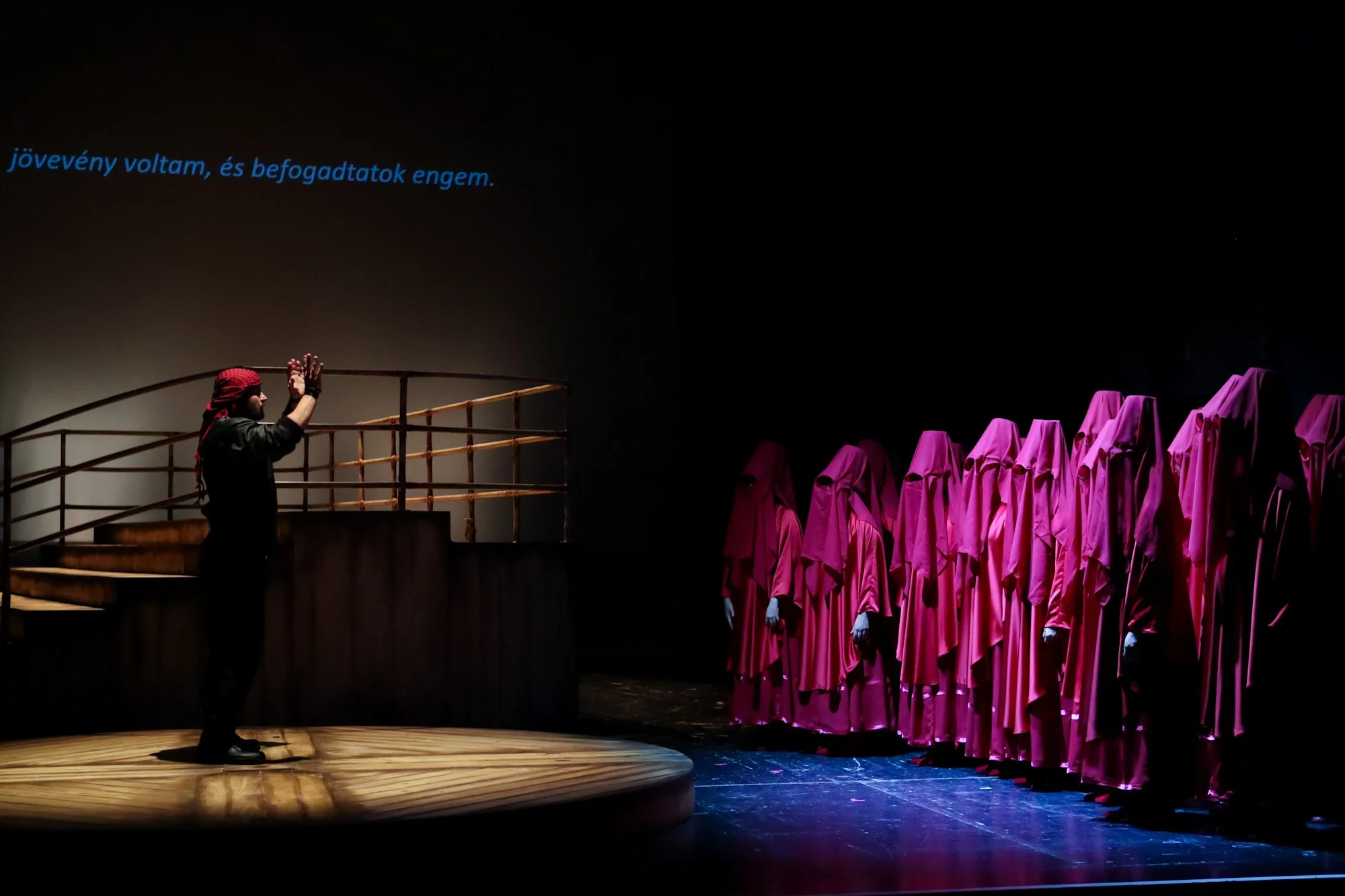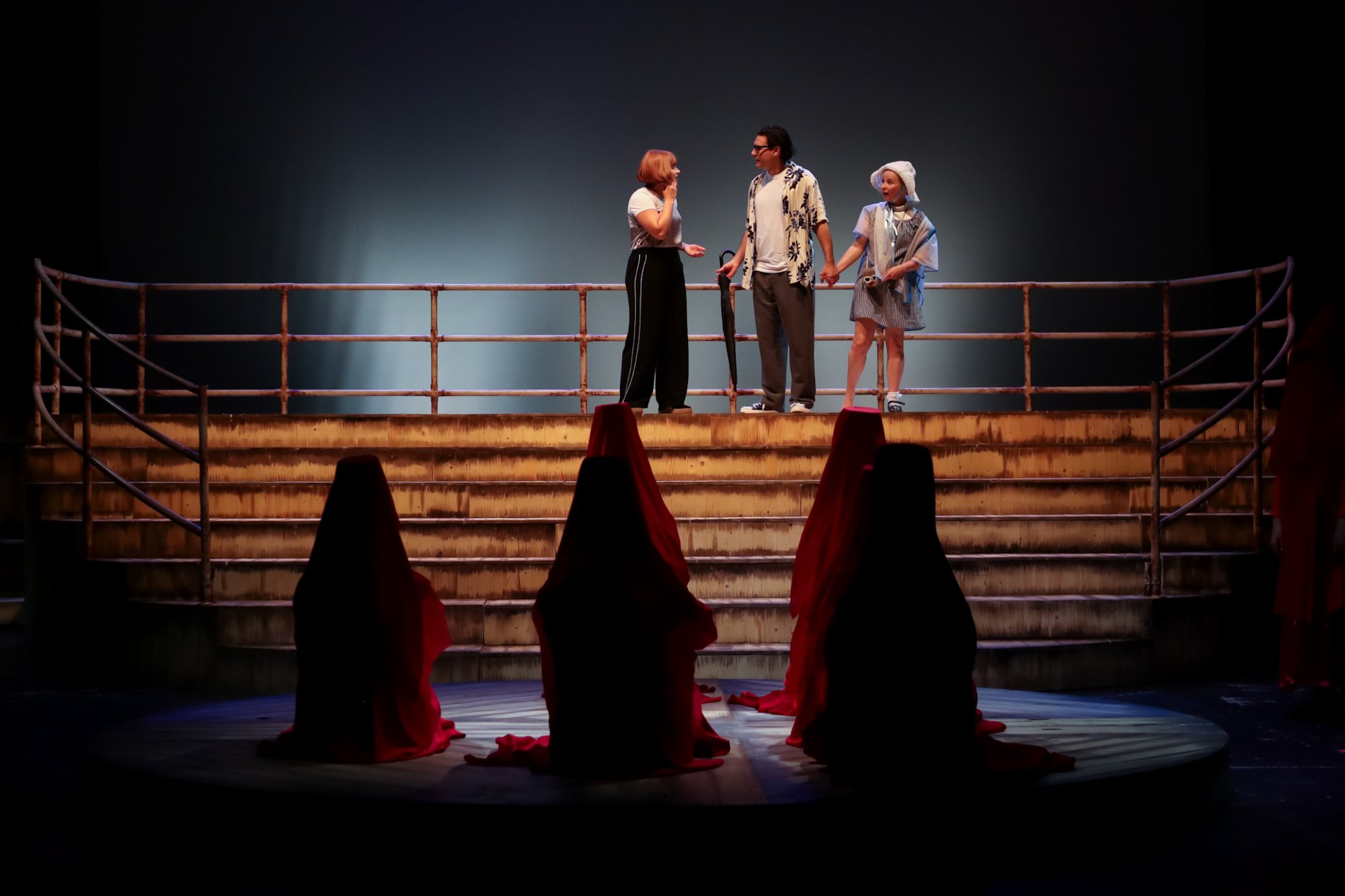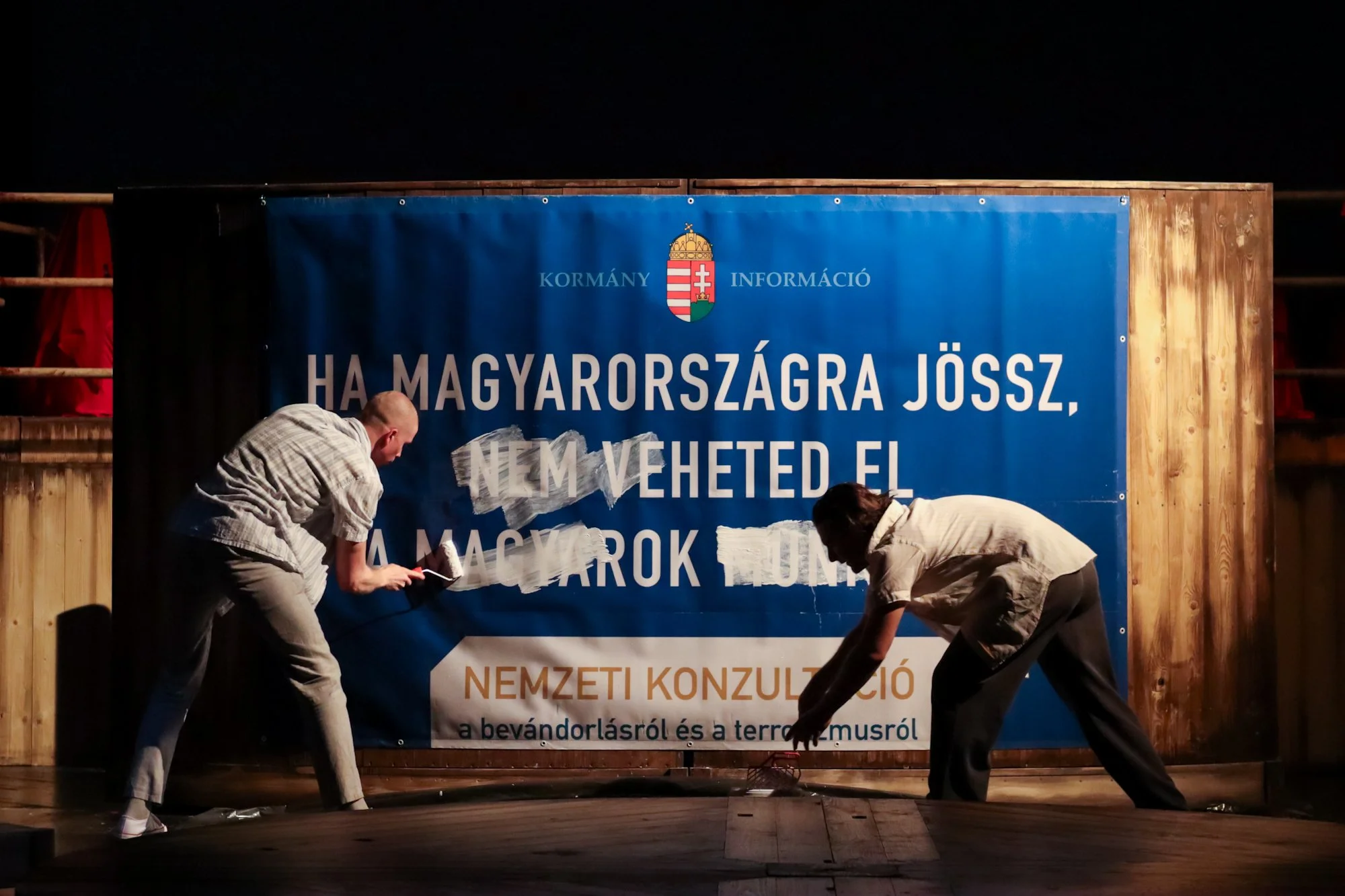“Oltalomkeresők” at the Szeged National Theater: a haunting reflection on refuge, fear, and humanity
Although Oltalomkeresők (The Seekers of Refuge), the Szeged National Theater’s latest world premiere, is performed mostly in Hungarian – with fragments of English, Arabic, and German woven into its dialogue – it deserves attention far beyond Hungarian-speaking audiences. The production’s language may limit who can fully experience it, yet its subject matter and visual power transcend words.
For our international readers, we cover the production not as a traditional review, but as a reflection on its themes and artistic vision, which speak to universal questions of empathy, responsibility, and belonging.
Ten years after the 2015 migration crisis that deeply affected life in southern Hungary, the Szeged National Theater has brought one of the most daring and visually striking productions of recent years to the stage. Oltalomkeresők premiered on October 17 at the Kisszínház, the theater’s smaller stage, to a long standing ovation.
Inspired by Aeschylus’s The Suppliants, the production reimagines the ancient myth of the Danaids – fifty women fleeing forced marriage – as a story unfolding amid the chaos of 2015, when over 150,000 refugees crossed Hungary’s southern border without authorization by early September. Blending classical form with documentary elements, the piece invites the audience to confront one of humanity’s oldest moral dilemmas: what does it mean to grant or deny refuge?
The work was born from extensive local research. Fábián interviewed Szeged-area residents who had personal encounters with refugees a decade ago – volunteers, border guards, ordinary citizens, and even clergy. Their stories, often contradictory in tone and message, form the raw material of the play, which dramaturg Edit Romankovics helped shape into a cohesive script. From these fragments, the creators built a mosaic-like structure that retraces the months of 2015 through shifting perspectives, alternating empathy and suspicion, chaos and compassion.
The staging is minimalist yet bold. The Danaids appear in full-body red veils, an image both ritualistic and alienating, while projected captions and the mix of Hungarian, English, German, and Arabic create a true Babel of voices. The chorus, performed by the theater’s own choir, punctuates the action with haunting compositions by Samu Gryllus, echoing the function of the ancient Greek chorus that both comments on and questions human behavior.
Humor also finds its way into the performance. Some of the play’s most memorable moments arise from absurd collisions of everyday life and crisis – such as a family stroll along the Tisza River, interrupted by the sudden arrival of refugees, sparking a fierce argument about moral duty, civic responsibilities, and the limits of empathy. Even the ugliest outbursts, drawn from recognizable social attitudes, are presented with a touch of grotesque irony, provoking both laughter and unease.
One of the most powerful scenes revisits a notorious government billboard from 2015 reading, “If you come to Hungary, you cannot take the jobs of Hungarians.” On stage, the slogan’s second half is erased, and the audience is invited to offer alternative endings. Their spontaneous replies – ranging from “abandon all hope” to “have a lángos” – turn a symbol of propaganda into a moment of collective reflection.
Fábián and his creative team, including set designer Szilárd Boráros, handle the politically charged subject with courage and sensitivity. Rather than moralizing, Oltalomkeresők reveals the complexity of perspectives that defined the crisis, and still define public discourse today. The performances are vivid and convincing throughout, balancing empathy with biting satire.
Visually and emotionally, this is one of the most arresting productions the Szeged National Theater has staged in years. By merging myth and memory, at its heart, the play asks what it means to offer refuge – and what it costs to deny it.
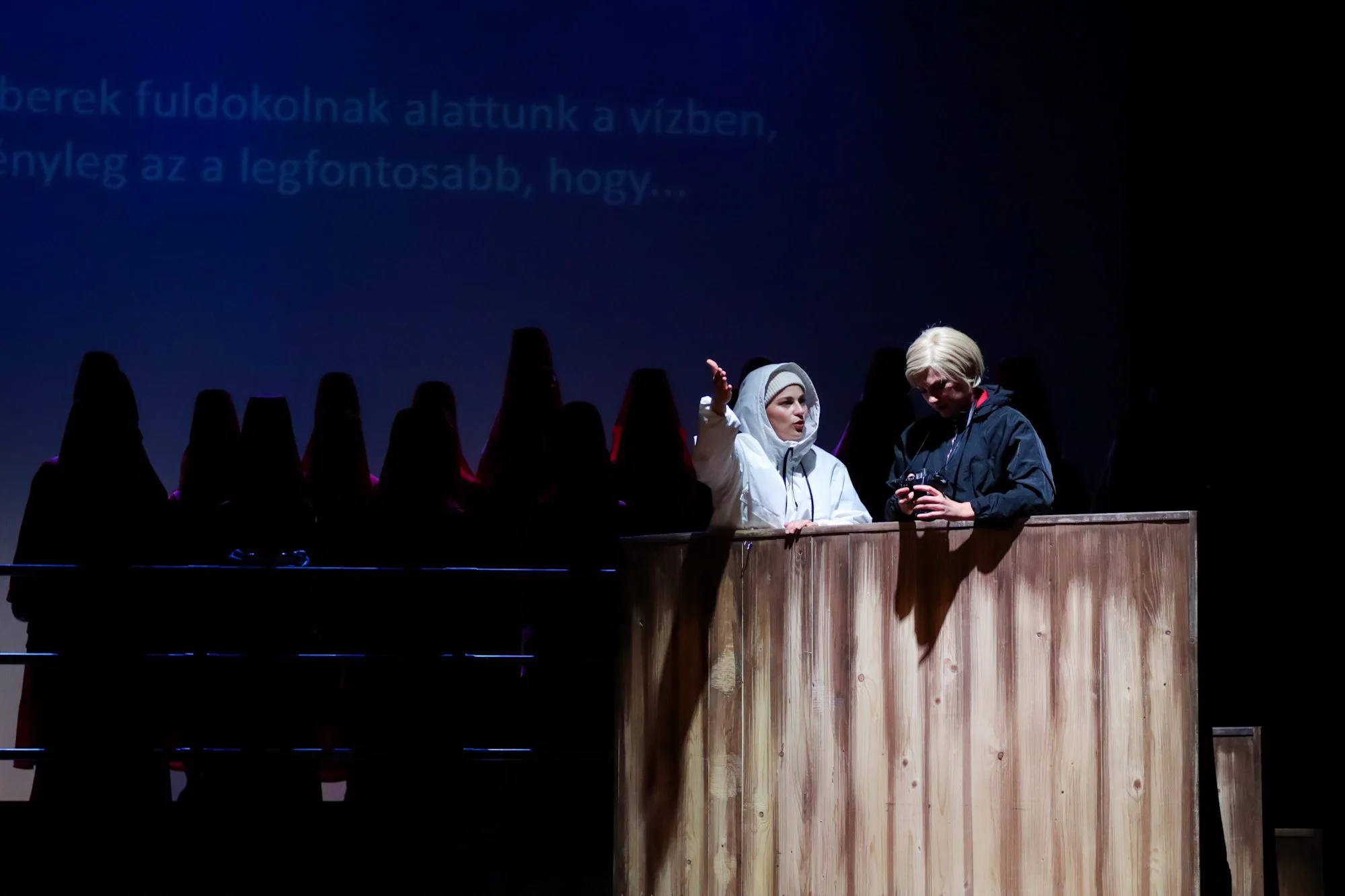
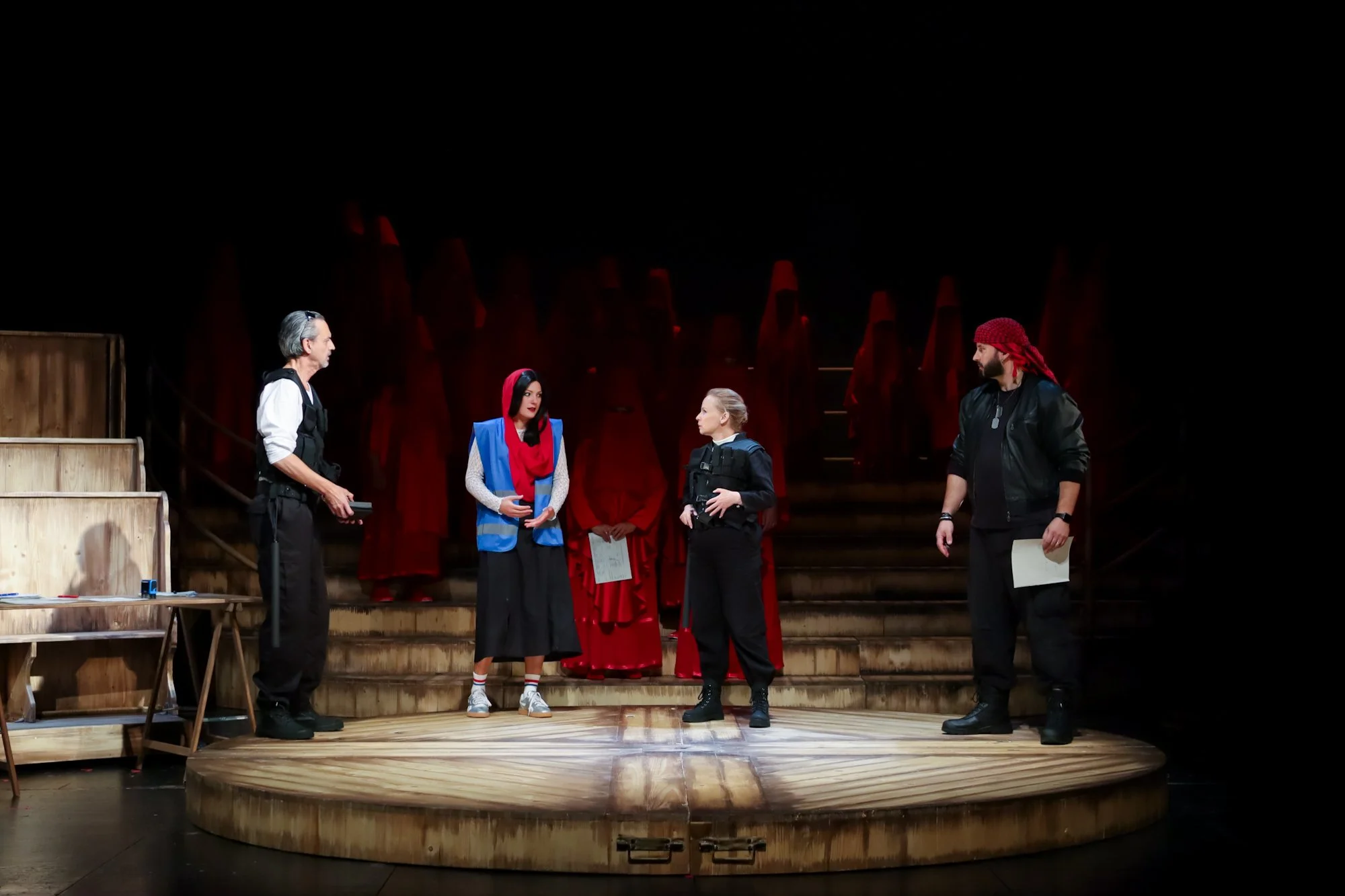
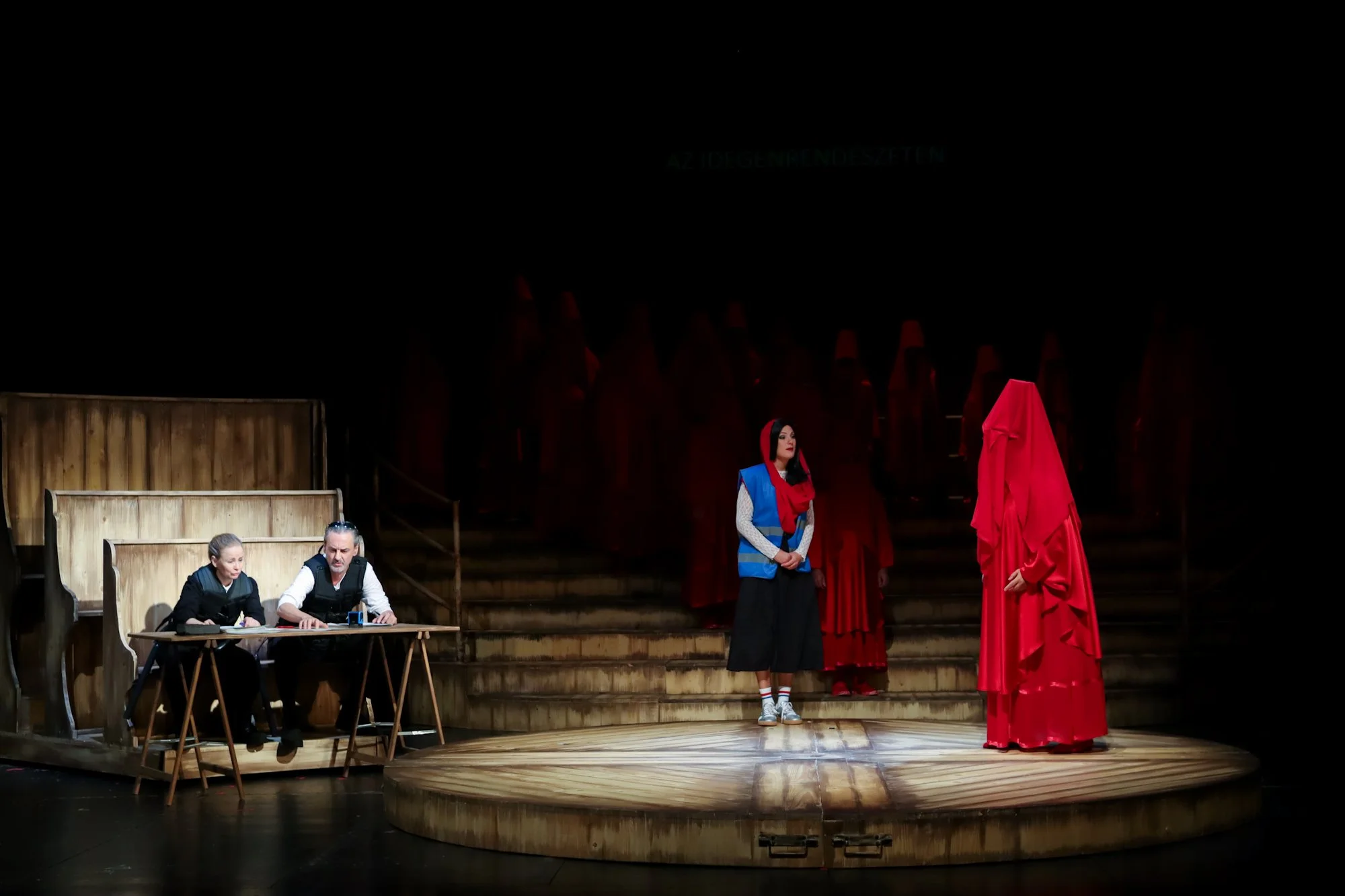
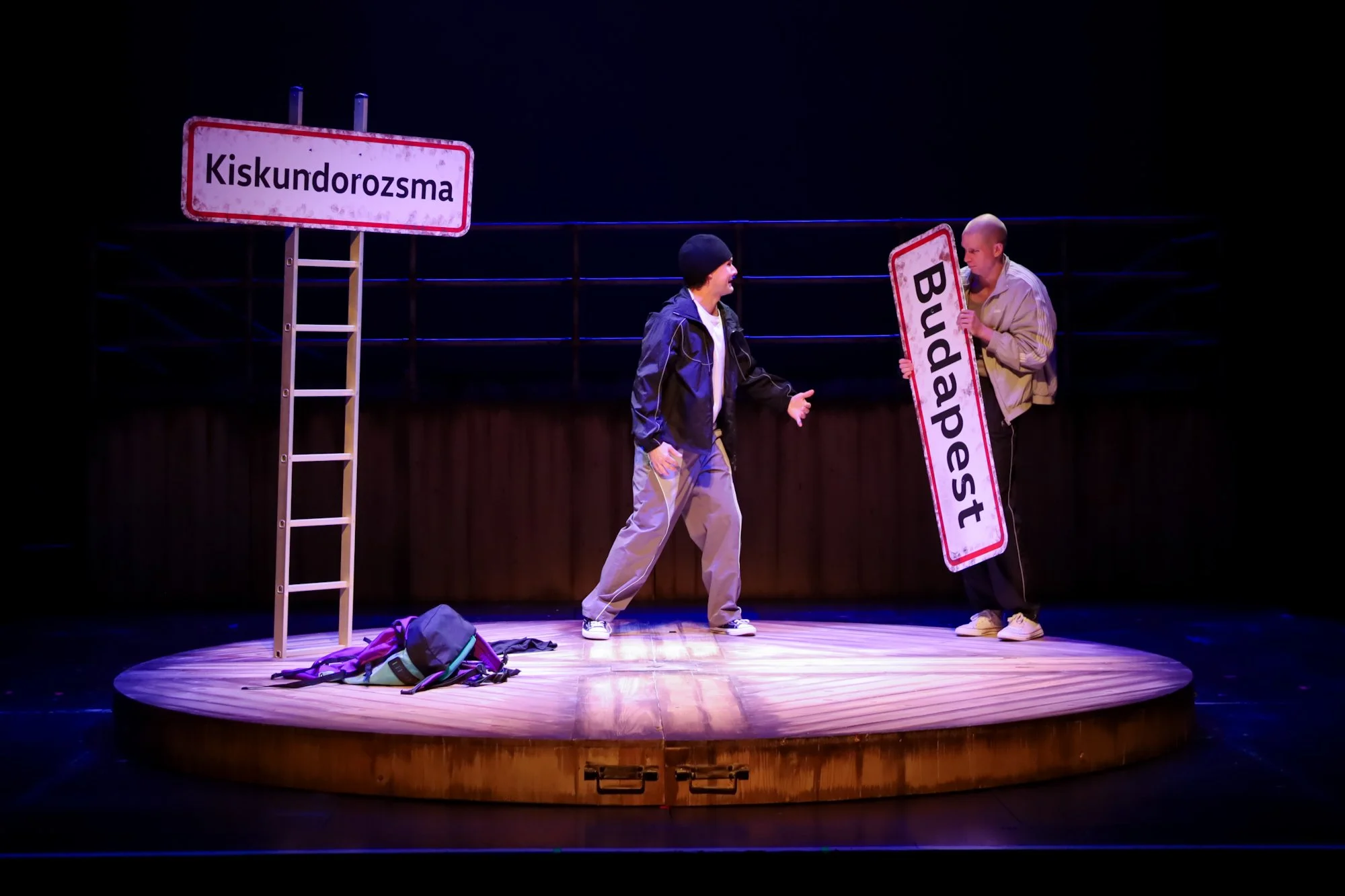
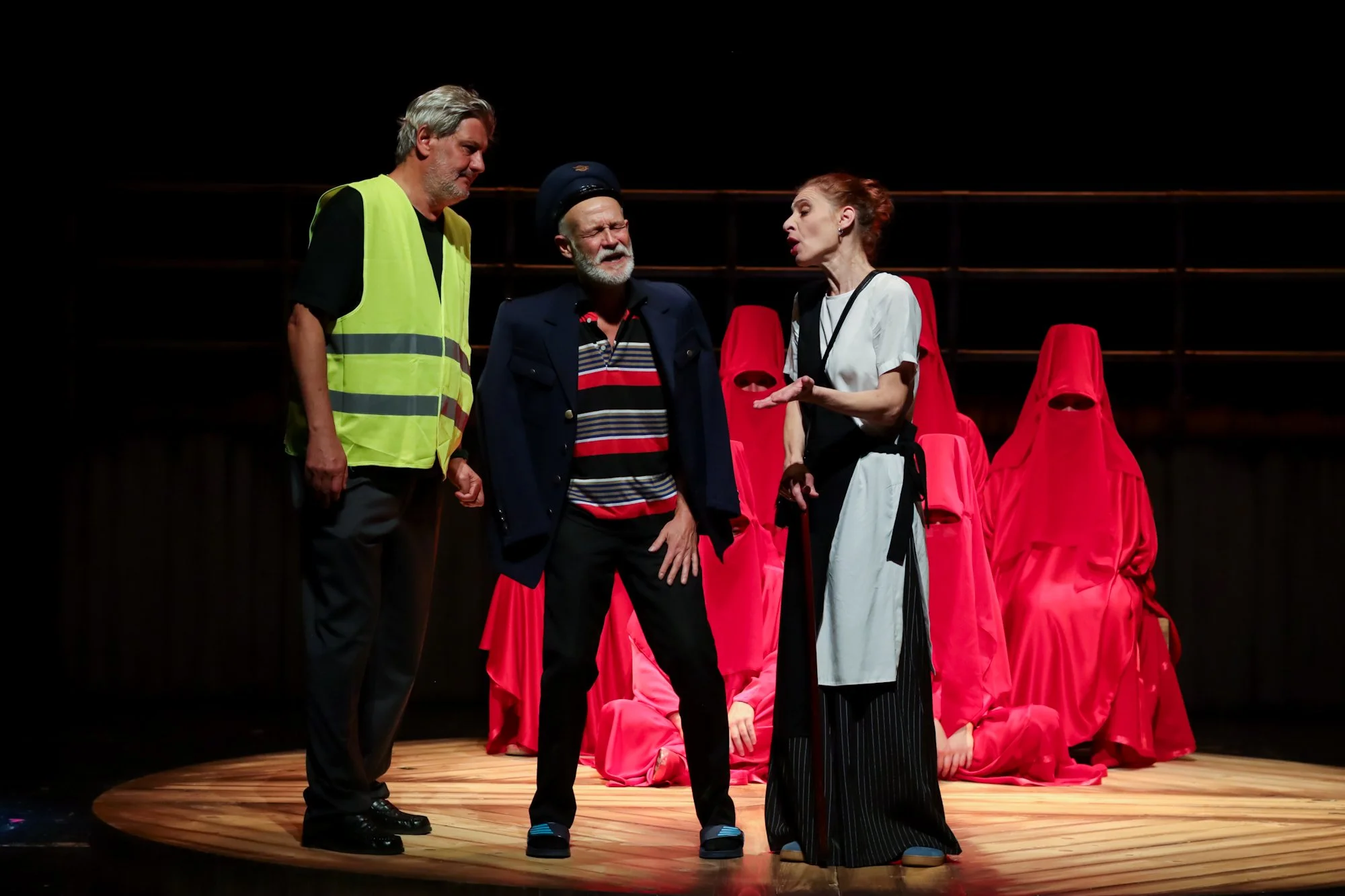
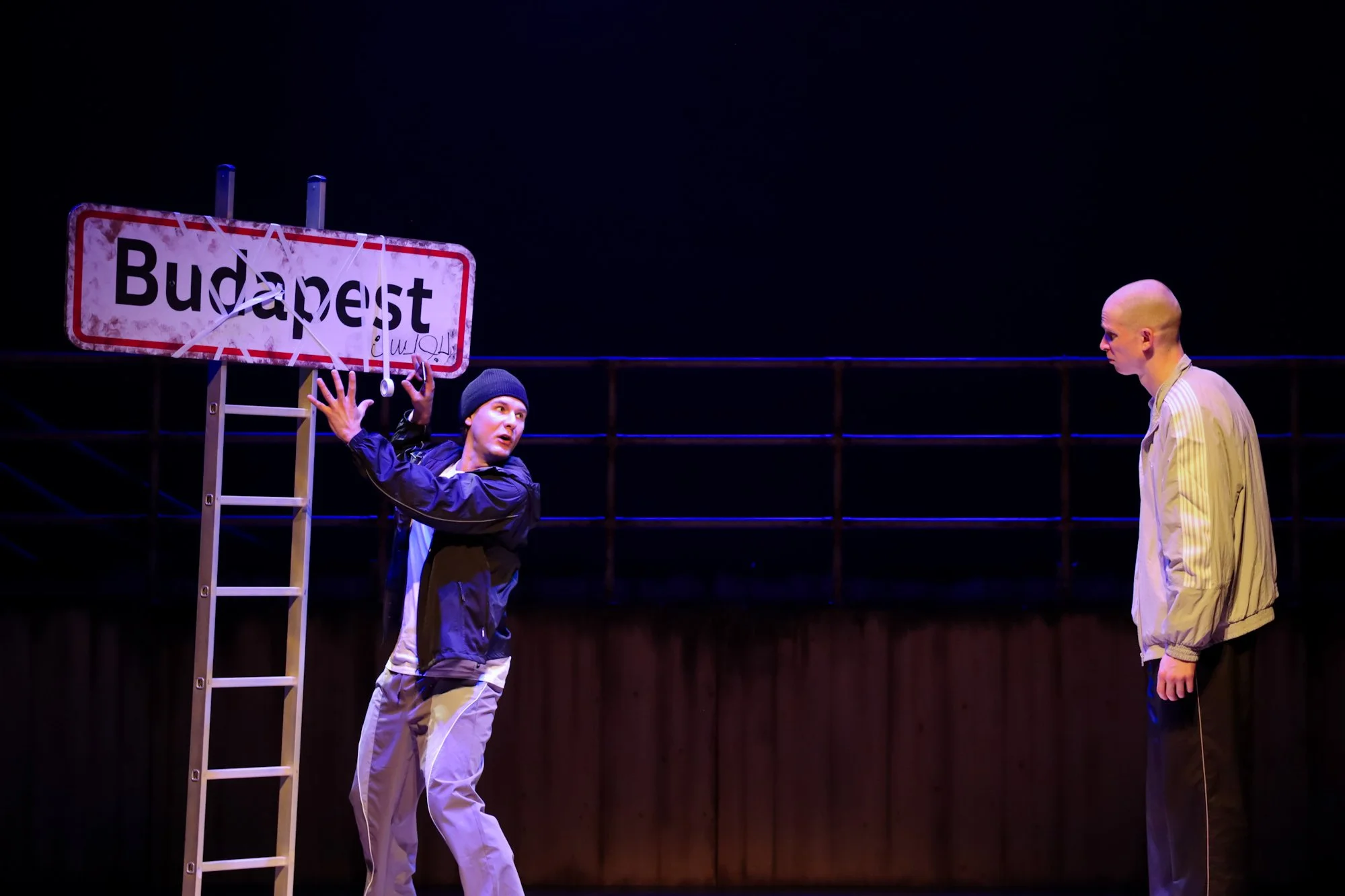
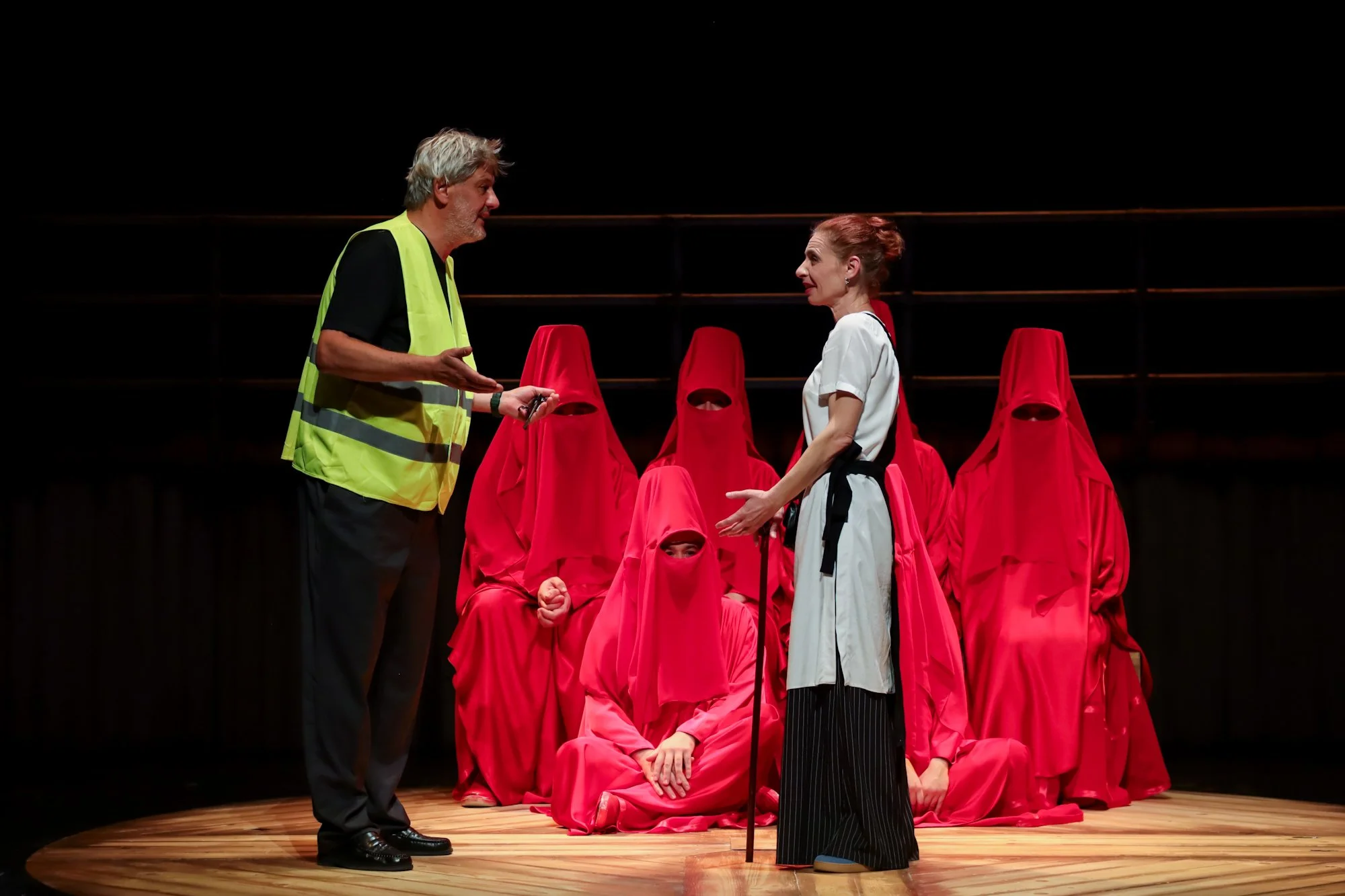

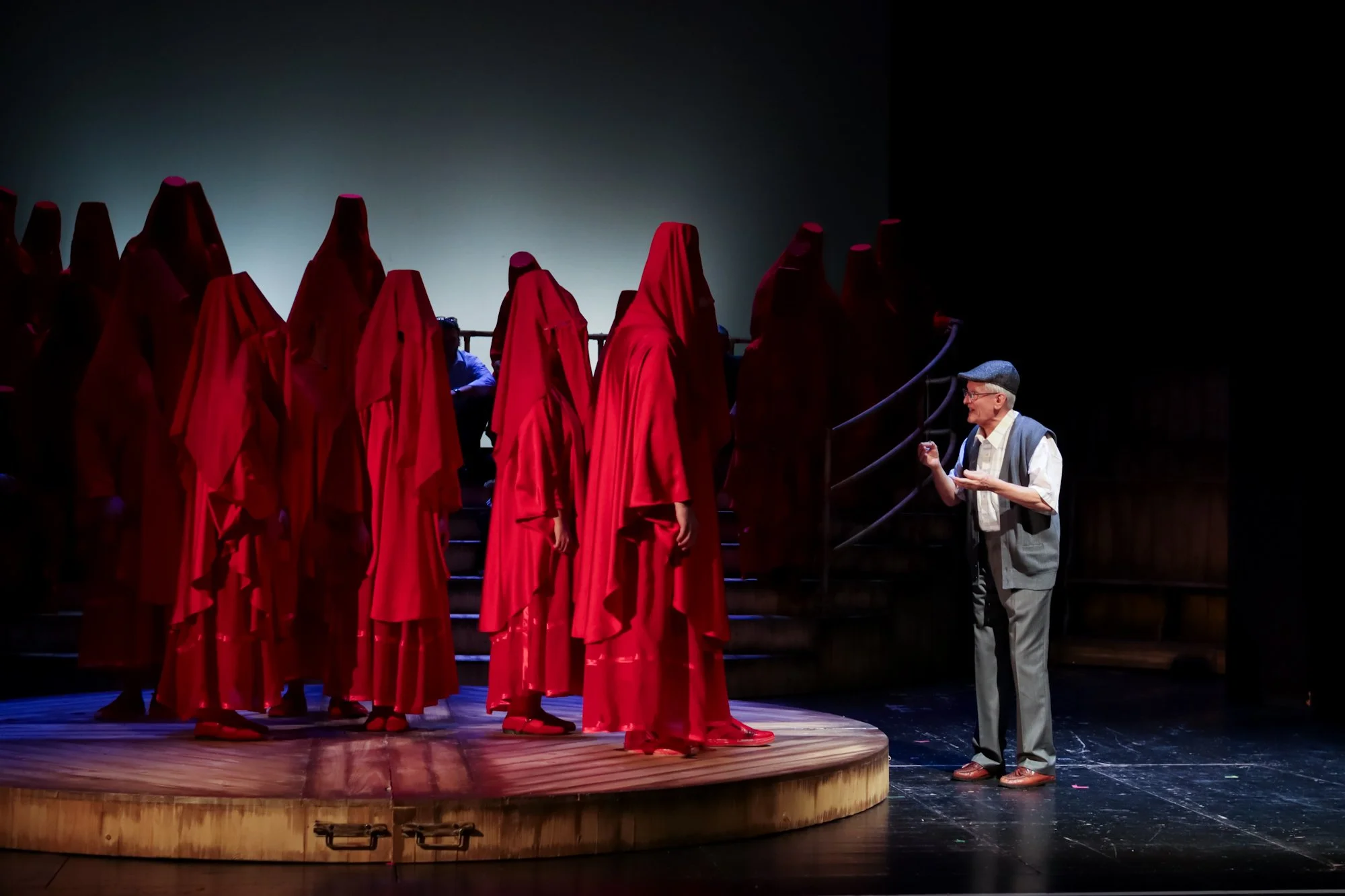
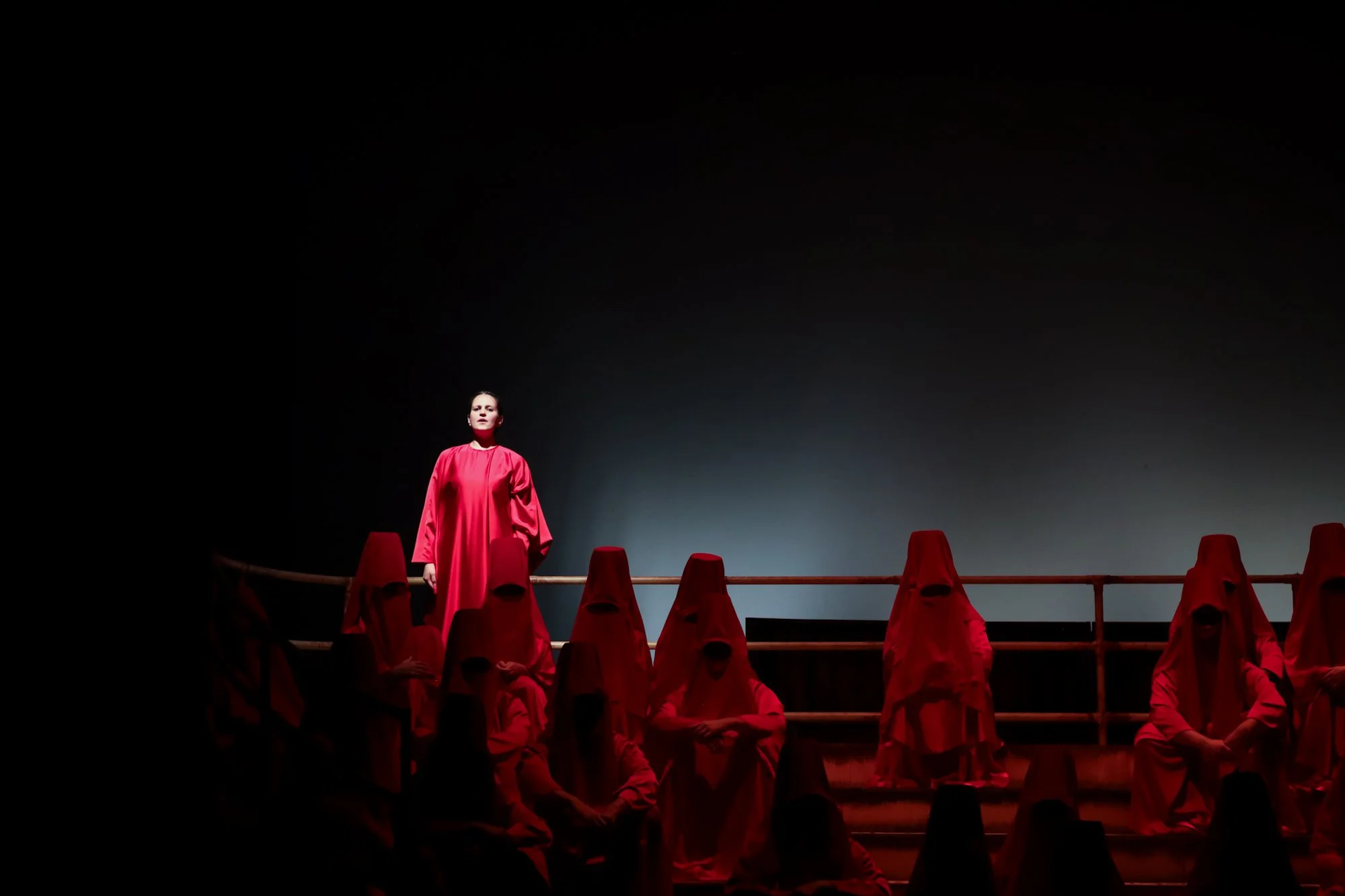
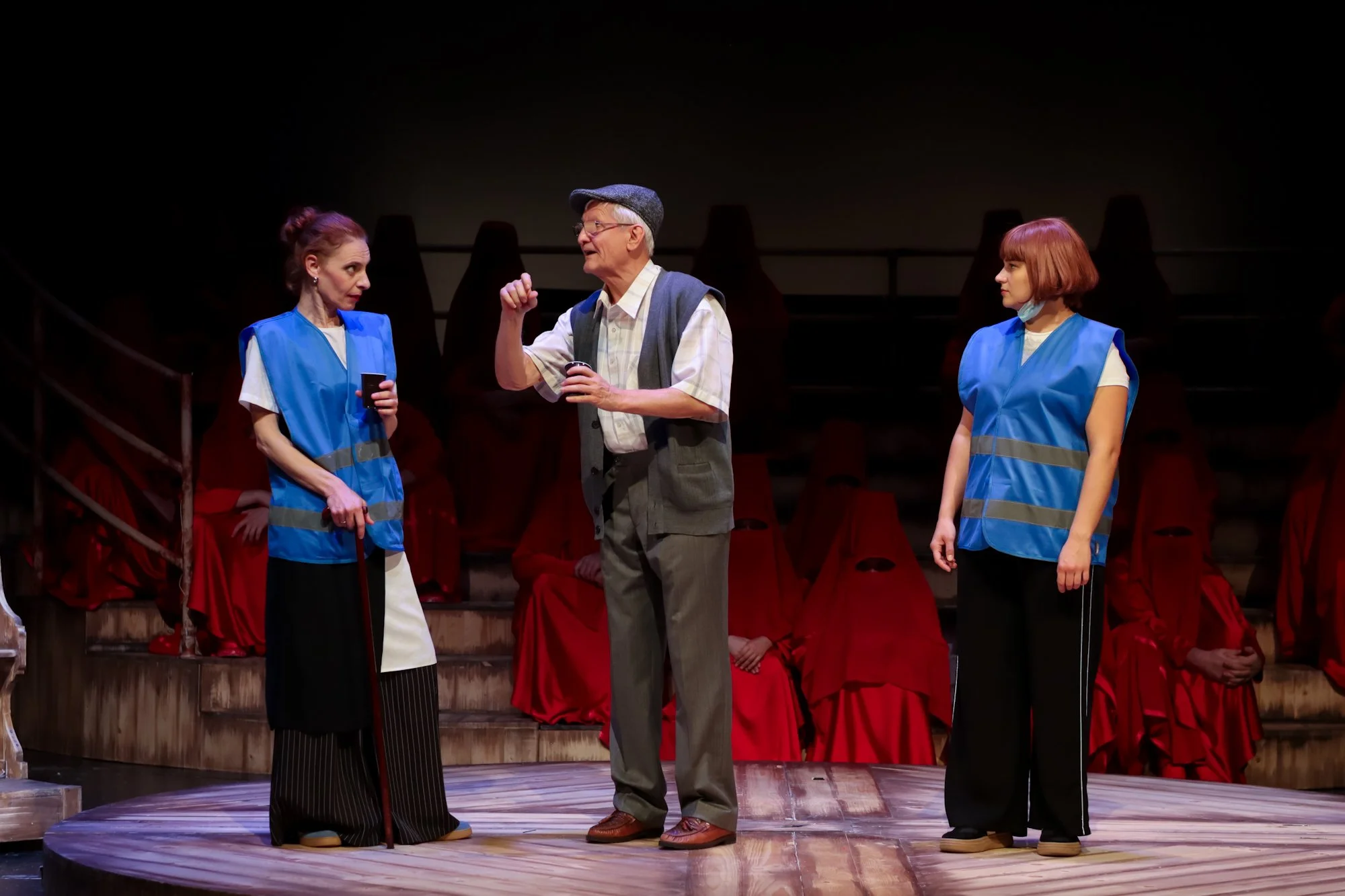
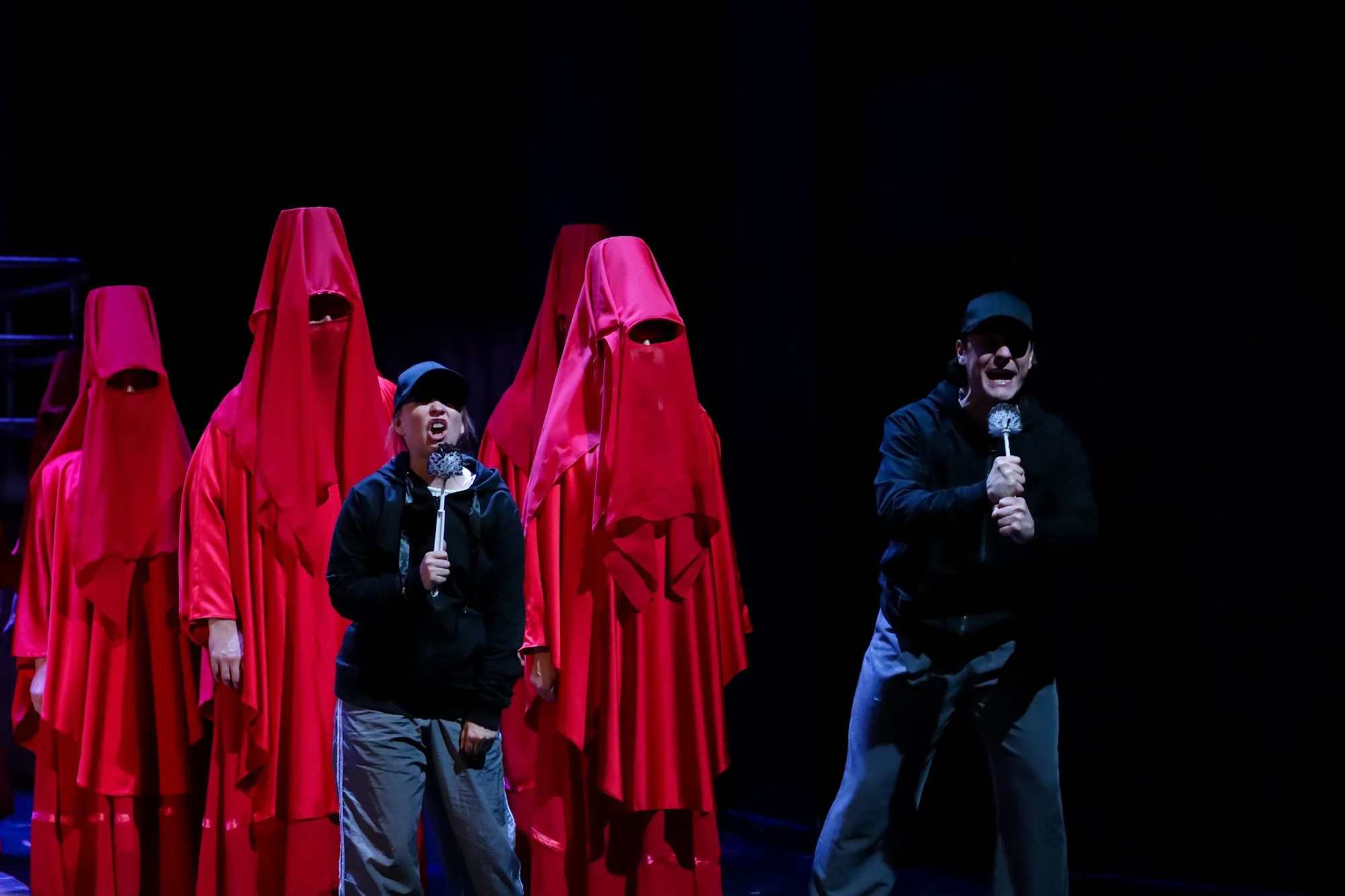
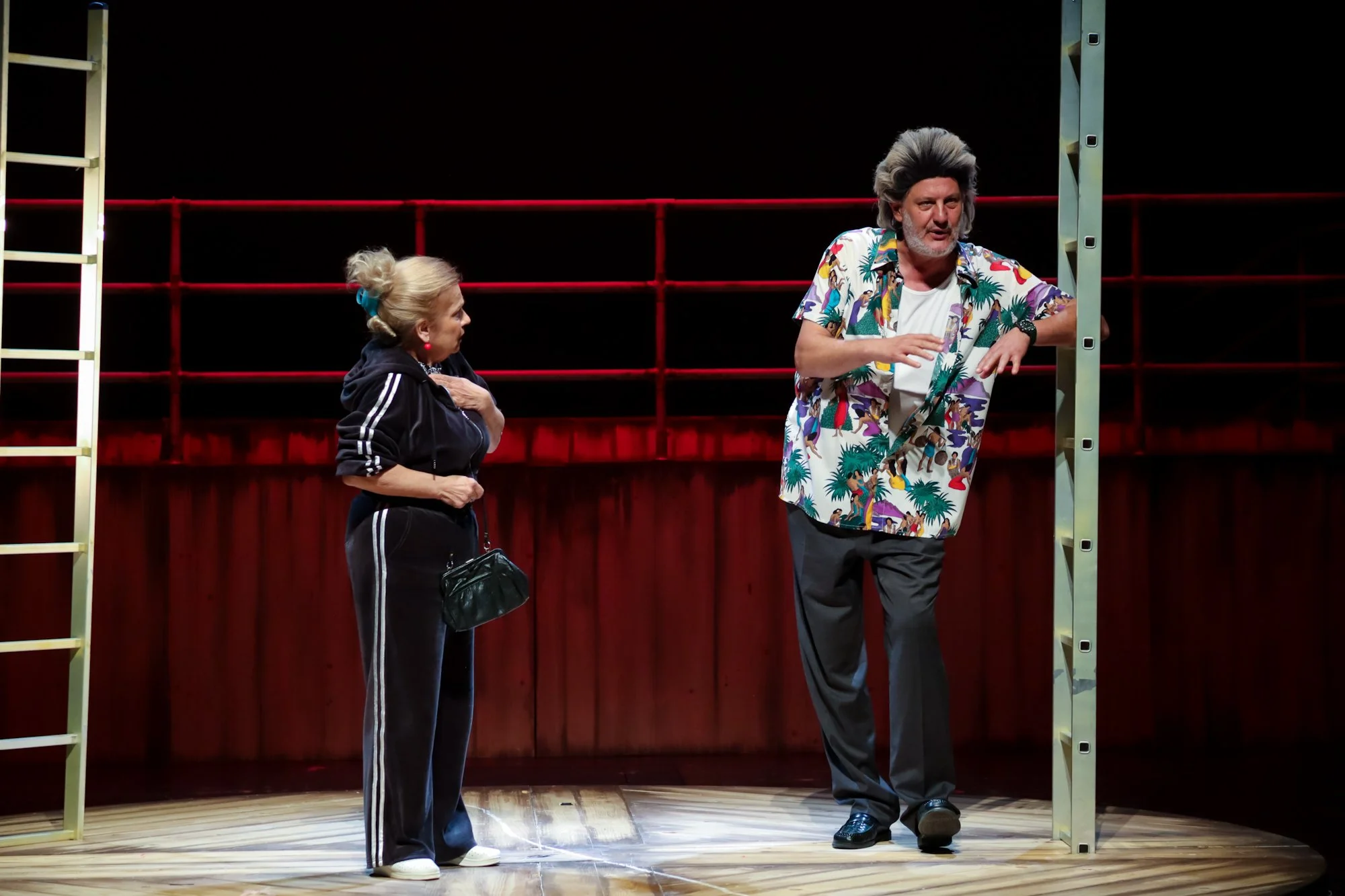
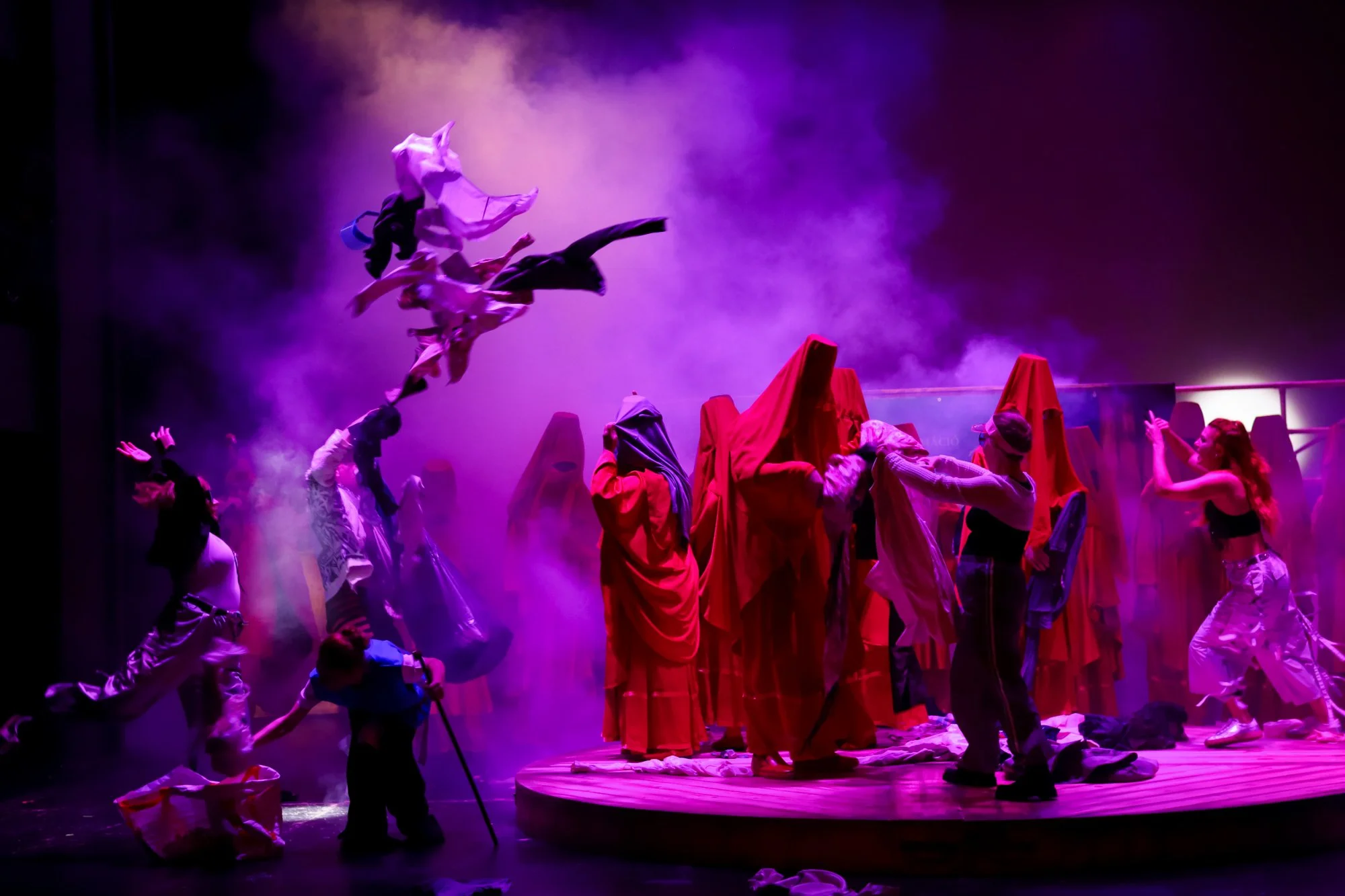
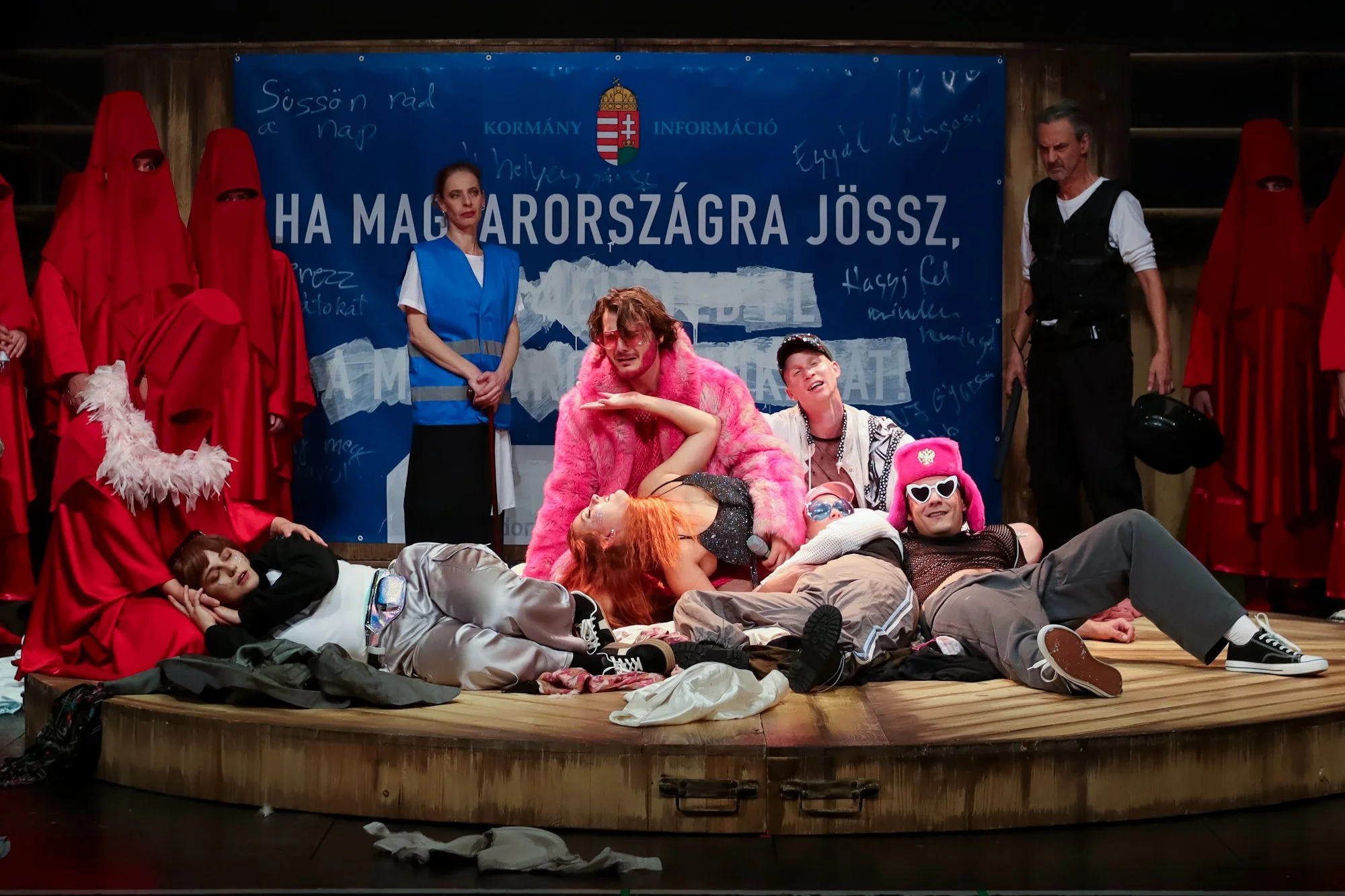
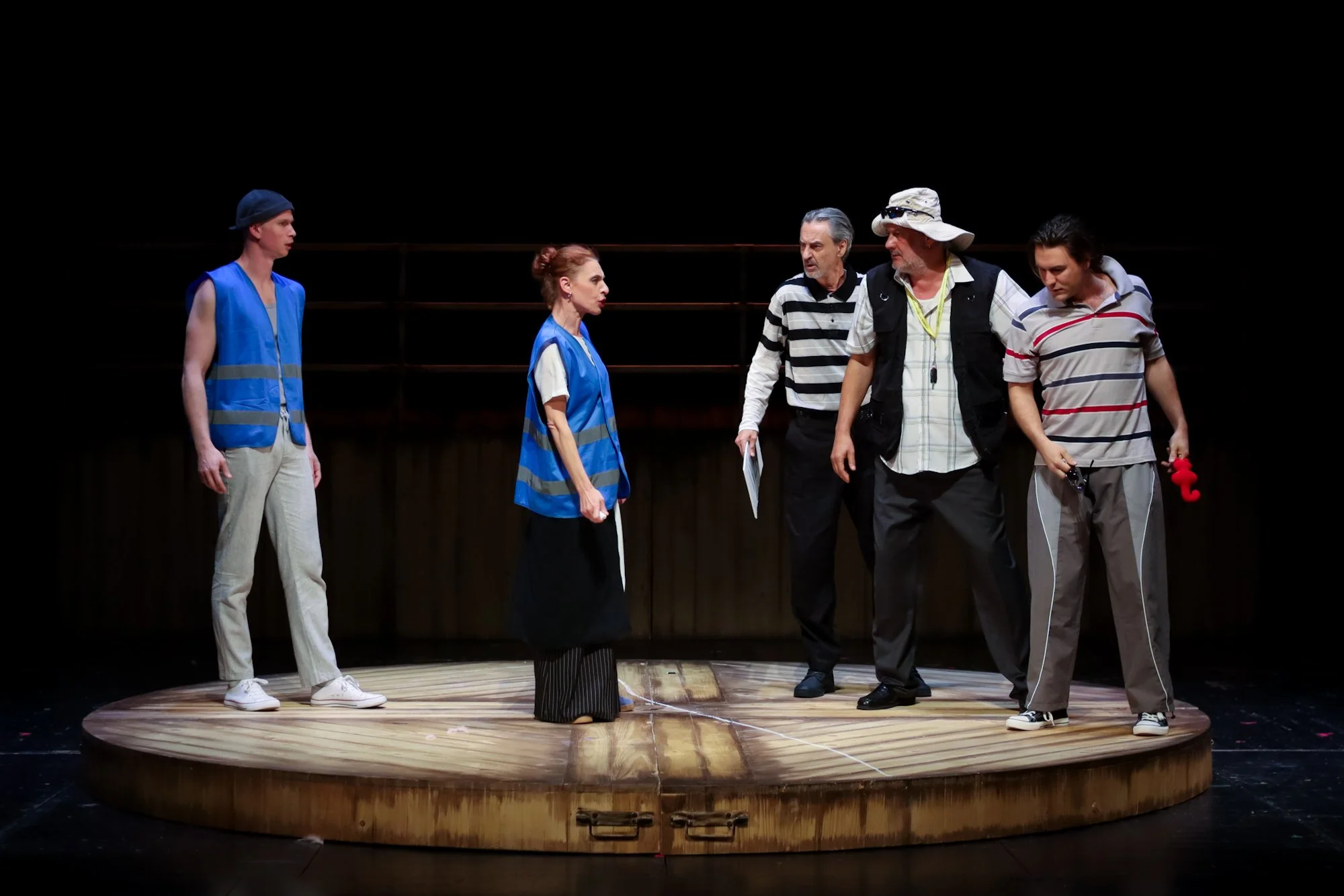
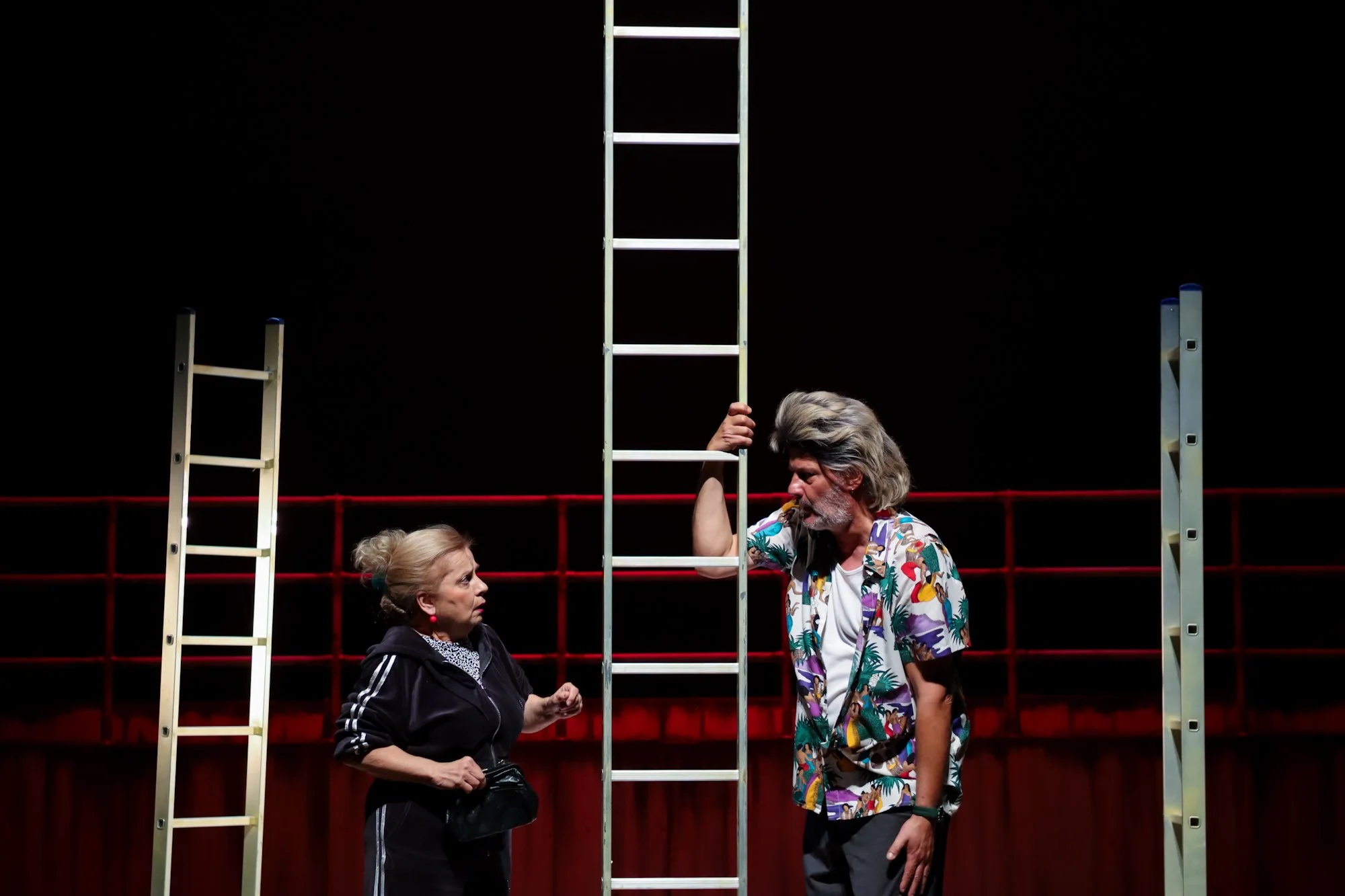

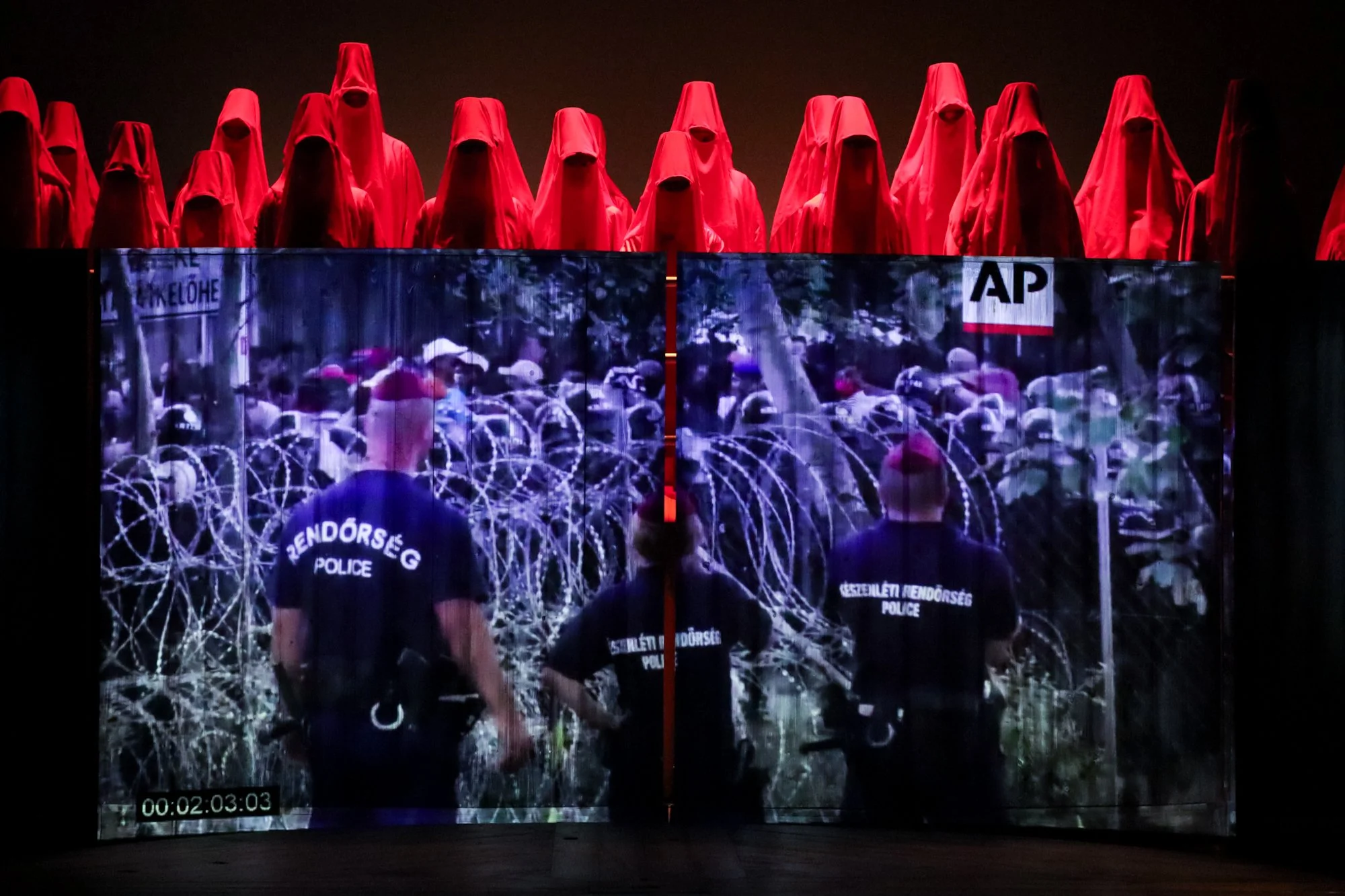

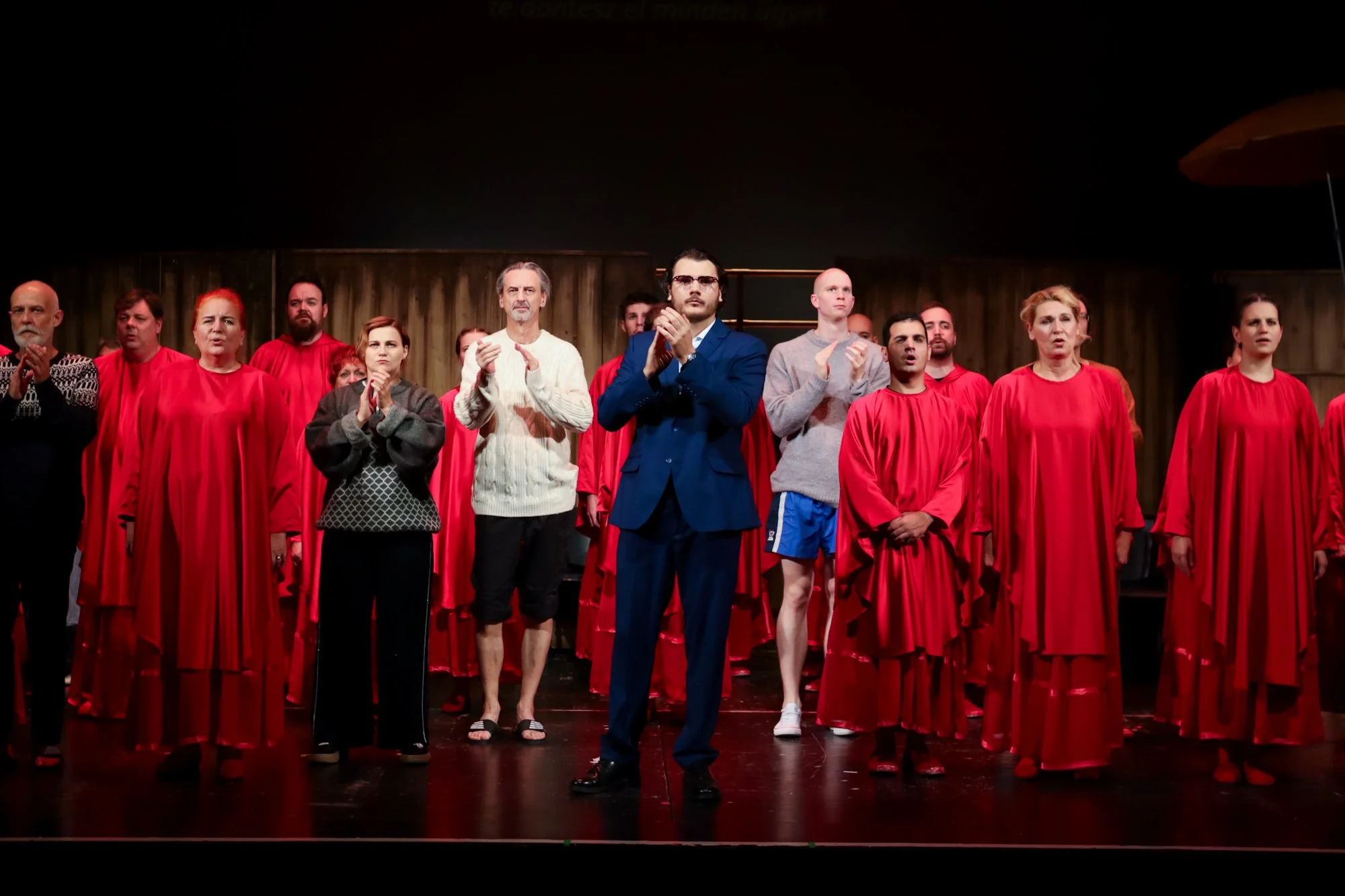
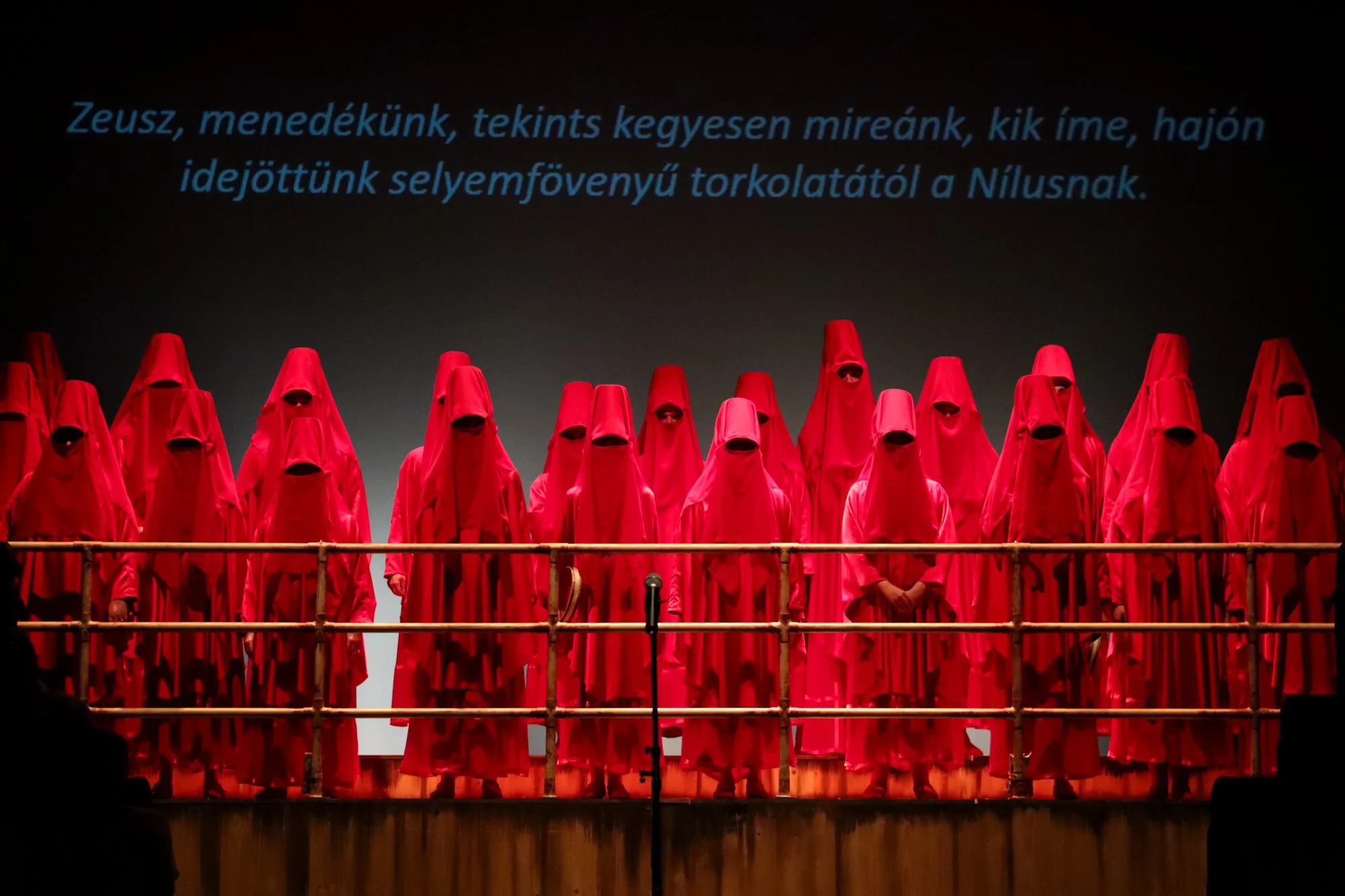
Photos: Szilvia Molnar / Szegedify
